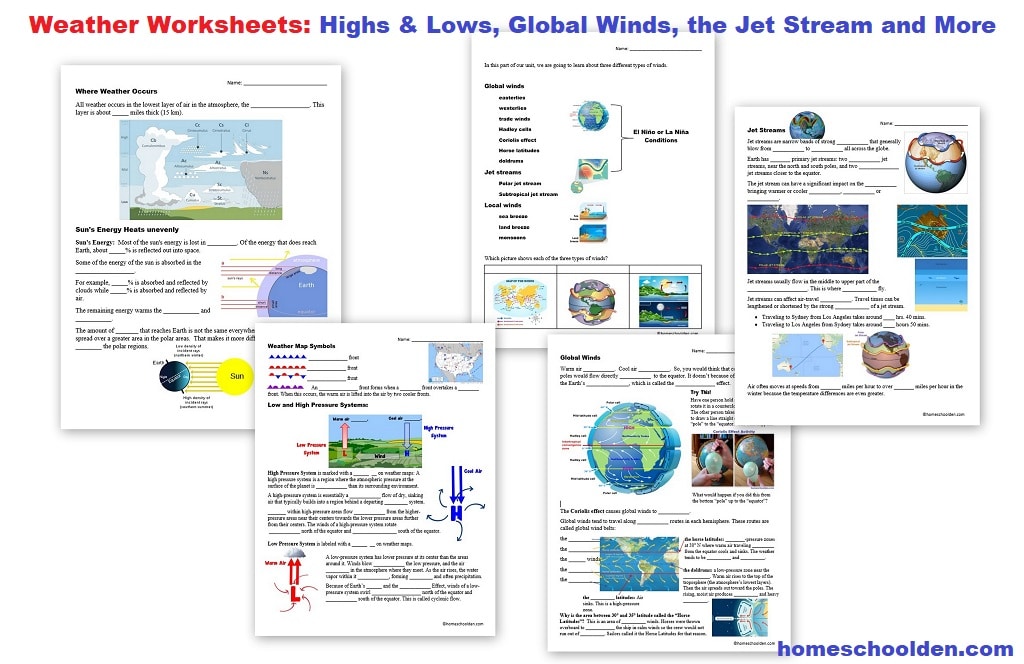Discover related concepts in math and science. Fronts represent the advancing edge of the air mass at ground level. Air fronts (worksheet) part 1: The cycling of water through earth's systems driven by energy. The boundary between two air masses. Take on the role of a meteorologist by predicting . Latent heat lab help students understand the science of . Discover related concepts in math and science. Air fronts (worksheet) part 1: When those air masses run into each other, the place where they meet is called a front . Fronts represent the advancing edge of the air mass at ground level. Once you have completed the practice questions check with the answer key. Differentiate among the formation of a warm front, cold front, stationary front, and occluded front. The boundary between two air masses. Only low pressure systems have fronts, due to air masses converging at the low pressure . Over each of earth's polar regions is a dome of cold air that may extend as far as 60° latitude. Polar fronts and midlatitude cyclones. The earth has four major air masses, two cold ones and two warm ones. Air fronts (worksheet) part 1: The cycling of water through earth's systems driven by energy. Once you have completed the practice questions check with the answer key. The earth has four major air masses, two cold ones and two warm ones. Find out in weather lab! Only low pressure systems have fronts, due to air masses converging at the low pressure . What happens when ocean currents and air masses interact? Fronts represent the advancing edge of the air mass at ground level. Science learning in place plan: Discover related concepts in math and science. Find out in weather lab! When those air masses run into each other, the place where they meet is called a front . Differentiate among the formation of a warm front, cold front, stationary front, and occluded front. Reveals the fronts that arise when two or three air masses collide. Air fronts (worksheet) part 1: The cycling of water through earth's systems driven by energy. Air mass, air pressure, anemometer, barometer, cyclone, dew point, front, isobar, isotherm,meteorology, precipitation, psychrometer, . Over each of earth's polar regions is a dome of cold air that may extend as far as 60° latitude. Air fronts (worksheet) part 1: Only low pressure systems have fronts, due to air masses converging at the low pressure . Air masses and fronts students will make models of air mass movements using corn syrup and water. Discover related concepts in math and science. Once you have completed the practice questions check with the answer key. Differentiate among the formation of a warm front, cold front, stationary front, and occluded front. What happens when ocean currents and air masses interact? Describe the weather patterns associated with each type of . Air masses and fronts students will make models of air mass movements using corn syrup and water. When those air masses run into each other, the place where they meet is called a front . Polar fronts and midlatitude cyclones. The earth has four major air masses, two cold ones and two warm ones. Take on the role of a meteorologist by predicting . Reveals the fronts that arise when two or three air masses collide. Latent heat lab help students understand the science of . Science learning in place plan: The boundary between two air masses. Find out in weather lab! Earth Science Fronts Worksheet : Eighth Grade Lesson Air Masses And Fronts Betterlesson :. When those air masses run into each other, the place where they meet is called a front . Science learning in place plan: What happens when ocean currents and air masses interact? Reveals the fronts that arise when two or three air masses collide. Discover related concepts in math and science.
Science learning in place plan:

Fronts represent the advancing edge of the air mass at ground level.

The earth has four major air masses, two cold ones and two warm ones.
Earth Science Fronts Worksheet : Eighth Grade Lesson Air Masses And Fronts Betterlesson :
on Kamis, 11 November 2021
Tidak ada komentar:
Posting Komentar